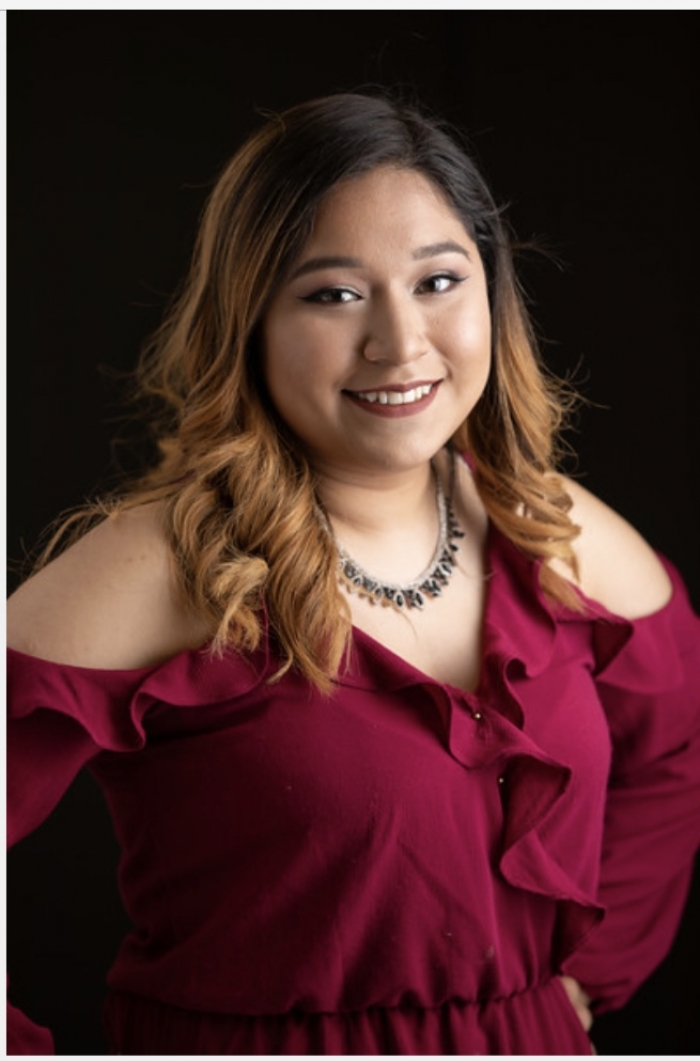SOAR Student Profiles

Carina Vazquez
- SOAR Position: Member; Alumni
- Major: Physics and Mathematics
- Faculty Mentor(s): William Robertson
Current Focus: Experimental Composition of Two Systems: Ring Resonator Structures and an Acoustic Demultiplexer
Project Description
The application of acoustic ring resonator structures for the manipulation of audio frequency acoustic waves is demonstrated experimentally and through numerical simulation. In this work, we experimentally investigated two acoustic systems: the Y-shaped demultiplexer and the acoustic ring resonator. A demultiplexer separates and transmits specific frequencies from a broadband input signal. The acoustic demultiplexer investigated here is based on resonances created by side-attached waveguide stubs. The Y-shaped waveguide sent broad bandwidth sound along an input line. Two output lines with a stub filter arrangement transmitted narrow bands of two different frequencies separated from the broadband input. Ring resonators are widely used in optics as filters and switches. Here we investigated the acoustic analog to the optical ring resonator. Three specific ring resonators systems are demonstrated: a simple single ring structure that acts as a comb filter, a single ring between two parallel waveguides that acts as an add-drop filter, and a sequential array of equally spaced rings that creates acoustic band gaps. The acoustic ring resonators consist of a circular waveguide attached tangential to a straight waveguide. The ring waveguide has resonances whenever the path around the ring equals an odd half-integer multiple of the wavelength. We showed that this phenomenon can be used to create notch filters, add-drop filters, and broad acoustic bandgap reflectors. The experiments are conducted in linear waveguides using an impulse response method. The ring resonators were created via 3D printing. Finite-element numerical simulations were conducted using COMSOL Multiphysics software. The experimental results were in good agreement with numerical models rendered in python and finite-element simulations.What are your professional aspirations?
My professional aspirations would be to graduate with a Ph. D. in Physics and work in the industry of lasers and optics.Do you have any advice for future researchers?
Take the chance to put yourself out there and figure out what you might like or dislike based on your research topic. Having a research experience helped me understand that I preferer the experimental side of physics rather than the theoretical or computational side.


